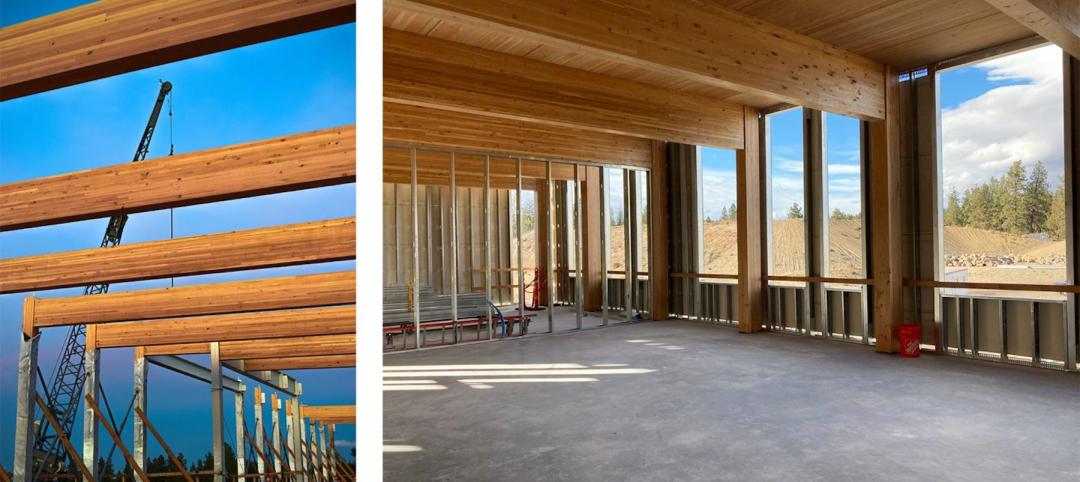Lilker Associates Consulting Engineers (lilker.com), a multidisciplinary MEP engineering firm with offices in Manhattan and Long Island, announces the acquisition of EMO Energy Solutions (EMO), a Falls Church, VA-based company in the DC Metro area specializing in energy audits, energy modeling, commissioning and LEED® consultation services. EMO will be integrated into a wholly owned subsidiary, Lilker EMO Energy Solutions. Managed from the Falls Church office, the newly formed subsidiary will provide comprehensive sustainable building systems design and energy conservation services on projects throughout the U.S.
EMO was founded in 1998 by licensed engineer and LEED Accredited professional Eric Oliver. The firm has developed energy strategies and provided energy consultation services to clients in the residential, commercial, institutional, government, and industrial building sectors for the past 15 years. Named one ofInc. Magazine's fastest growing companies in 2009, EMO has conducted over 45 million square feet of energy audits and participated in more than 350 LEED projects.
By combining the capabilities of a full service design firm with energy specialists, Lilker EMO Energy Solutions will provide state of the art knowledge and experience to enhance energy efficiency at every stage of the building process—from planning, design, energy modeling and energy auditing through installation, commissioning and retro-commissioning—for new construction and existing building renovations.
Lilker CEO and President Bruce Lilker, PE, says, "The formation of our new subsidiary, Lilker EMO Energy Solutions, reflects our commitment to sustainable design and allows us to offer clients the full range of energy consulting services along with our extensive design capabilities. It also provides an opportunity to bring our significant expertise in MEP engineering and technology solutions to the Washington, DC area."
Lilker EMO Energy Solutions will be led by Oliver, who will serve as Managing Director. A passionate conservationist, Oliver started his career with the federal government in EPA's Energy Star Buildings Program. He founded EMO to address the growing need for energy audit services, prior to the advent of the LEED rating systems. EMO was one of the earliest practitioners of the LEED program, adding energy modeling, commissioning, and LEED consulting services to its auditing capabilities. Oliver's 23 years of experience also includes technology feasibility studies, cost-benefit analysis, and the development of energy conservation and sustainable design strategies and policies. He has conducted energy training seminars, created energy awareness and education campaigns, and presented and moderated at several energy conferences.
Oliver holds a Master's degree in Building Technology and a Bachelor of Architecture from MIT. He is a Certified Energy Manager and a Certified Home Energy Rater.
"We're very excited about joining forces and becoming part of the Lilker team," says Oliver. "Integrating our skill set with the design function benefits the client from the planning stage forward. It streamlines the process and allows us to have a greater impact on energy conservation, which has always been my ultimate goal."
Founded in 1985, Lilker Associates is an award-winning, 100-member MEP engineering and energy firm headquartered in Manhattan with offices on Long Island and in Falls Church, VA. Licensed in many states, the company provides services for new and renovated commercial, institutional and retail facilities as well as high-rise and luxury residential buildings. The firm has two wholly owned subsidiaries: Technology Solutions Group (TSG) serves IT cabling, audio visual and security design needs; Lilker EMO Energy Solutions provides comprehensive energy auditing, modeling, commissioning and LEED consultation services.
(http://www.reuters.com/article/2013/05/01/lilker-acquires-emo-idUSnPNDC05652+1e0+PRN20130501)
Related Stories
| Aug 11, 2022
Report examines supposed conflict between good design and effective cost management
A report by the American Institute of Architects and the Associated General Contractors of America takes a look at the supposed conflict between good design and effective cost management, and why it causes friction between architects and contractors.
Energy Efficiency | Aug 11, 2022
Commercial Energy Efficiency: Finally “In-the-Money!”
By now, many business leaders are out in front of policymakers on prioritizing the energy transition.
High-rise Construction | Aug 11, 2022
Saudi Arabia unveils plans for a one-building city stretching over 100 miles long
Saudi Arabia recently announced plans for an ambitious urban project called The Line—a one-building city in the desert that will stretch 170 kilometers (106 miles) long and only 200 meters (656 feet) wide.
| Aug 10, 2022
U.S. needs more than four million new apartments by 2035
Roughly 4.3 million new apartments will be necessary by 2035 to meet rising demand, according to research from the National Multifamily Housing Council (NMHC) and National Apartment Association.
| Aug 10, 2022
Gresham Smith Founder, Batey M. Gresham Jr., passes at Age 88
It is with deep sadness that Gresham Smith announces the passing of Batey M. Gresham Jr., AIA—one of the firm’s founders.
| Aug 9, 2022
Work-from-home trend could result in $500 billion of lost value in office real estate
Researchers find major changes in lease revenues, office occupancy, lease renewal rates.
| Aug 9, 2022
5 Lean principles of design-build
Simply put, lean is the practice of creating more value with fewer resources.
| Aug 9, 2022
Designing healthy learning environments
Studies confirm healthy environments can improve learning outcomes and student success.
Legislation | Aug 8, 2022
Inflation Reduction Act includes over $5 billion for low carbon procurement
The Inflation Reduction Act of 2022, recently passed by the U.S. Senate, sets aside over $5 billion for low carbon procurement in the built environment.
| Aug 8, 2022
Mass timber and net zero design for higher education and lab buildings
When sourced from sustainably managed forests, the use of wood as a replacement for concrete and steel on larger scale construction projects has myriad economic and environmental benefits that have been thoroughly outlined in everything from academic journals to the pages of Newsweek.

















